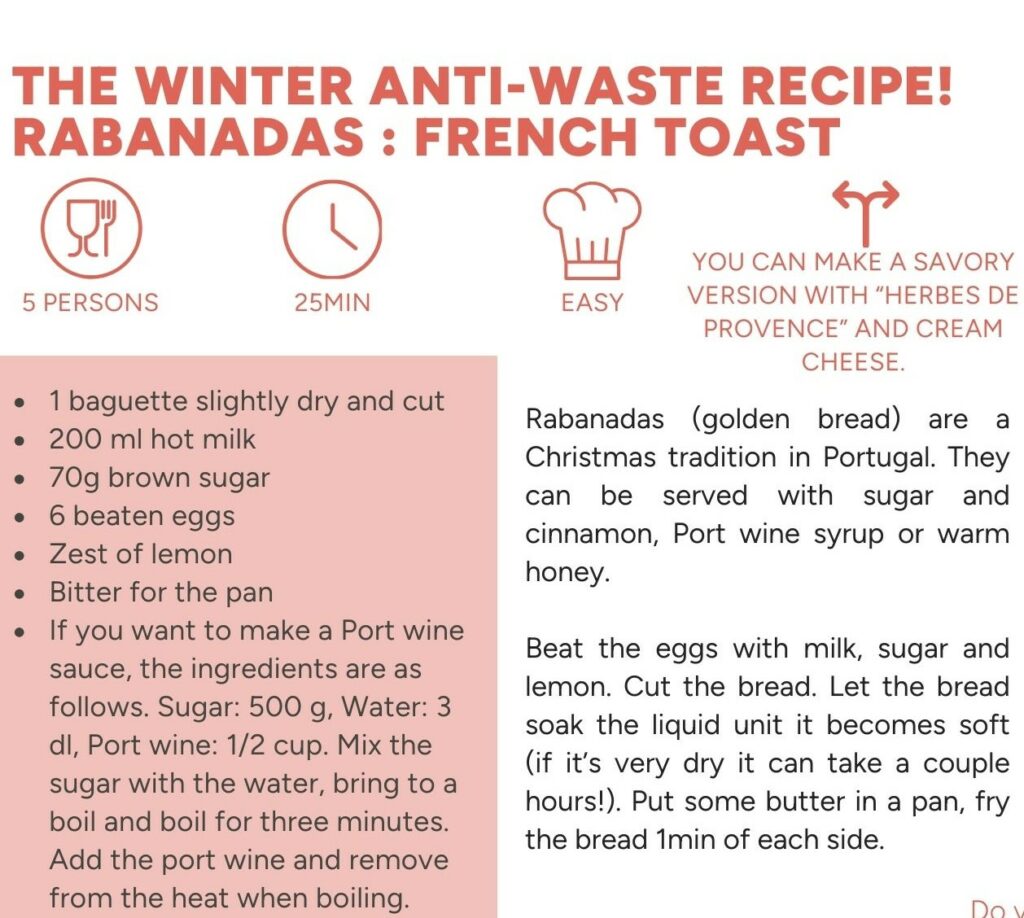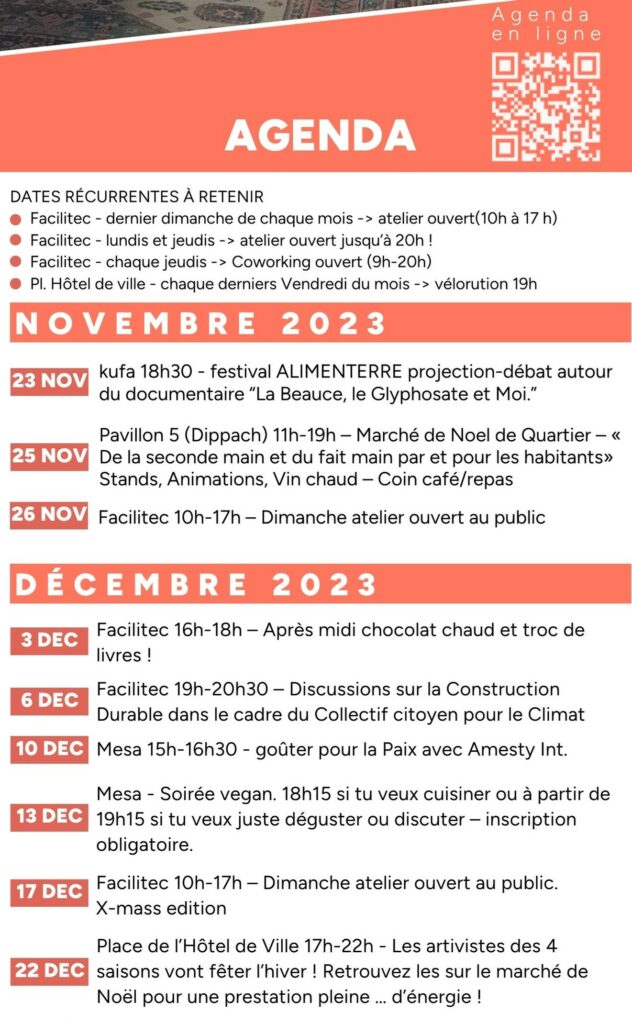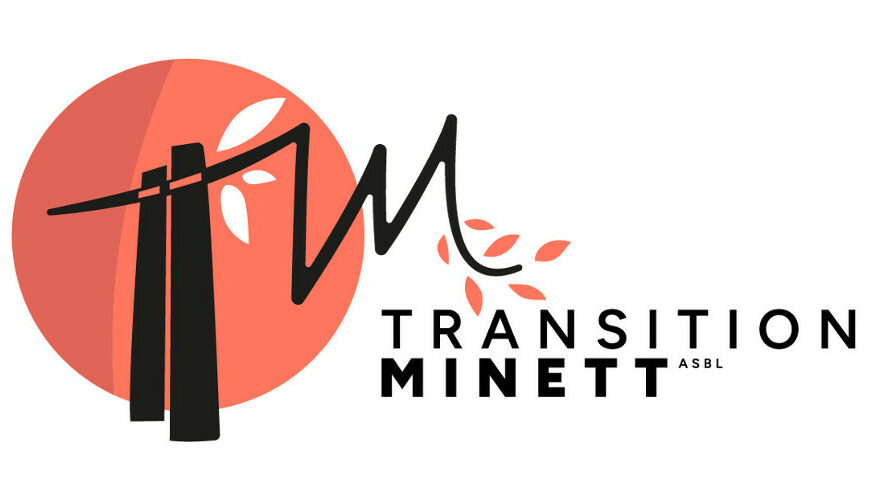Newsletter N°3 – circular economy
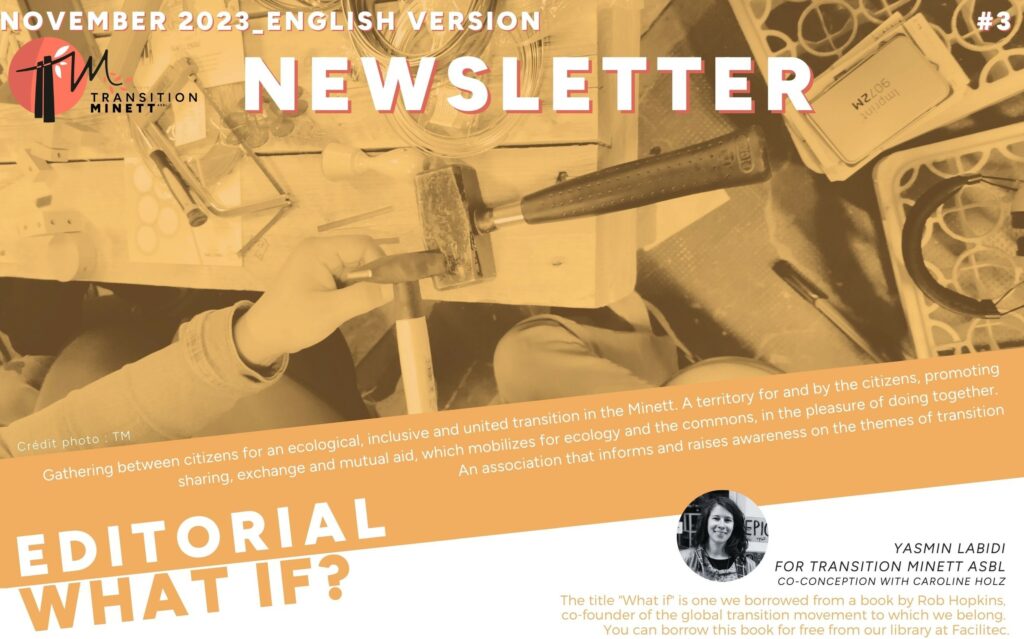
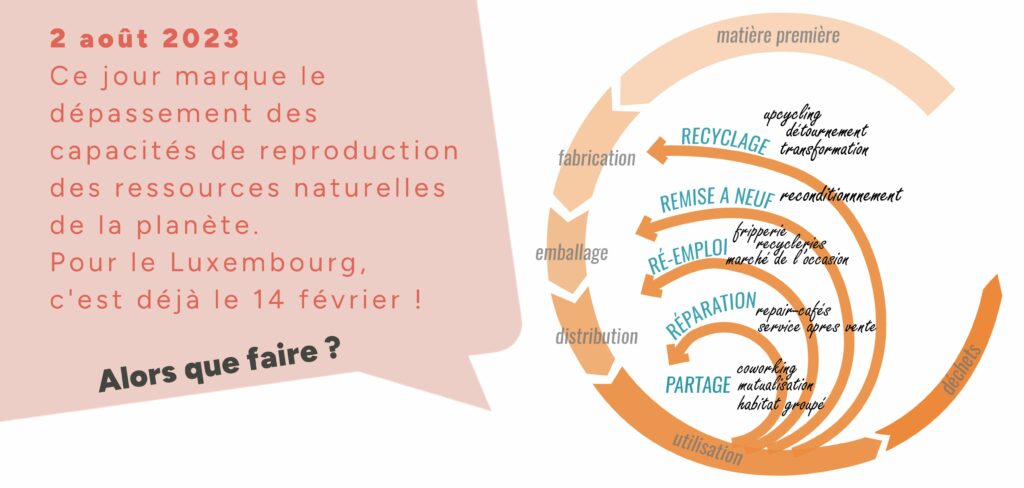
August 2nd, 2023. That’s the day on which human consumption of natural resources exceeds the planet’s capacity to reproduce them. For Luxembourg, it’s already February 14th! What can we do about it?
One obvious answer is to make better use of existing resources and reduce the need for new ones as much as possible. This strategy is all the more interesting for Luxembourg, which has very few natural resources.
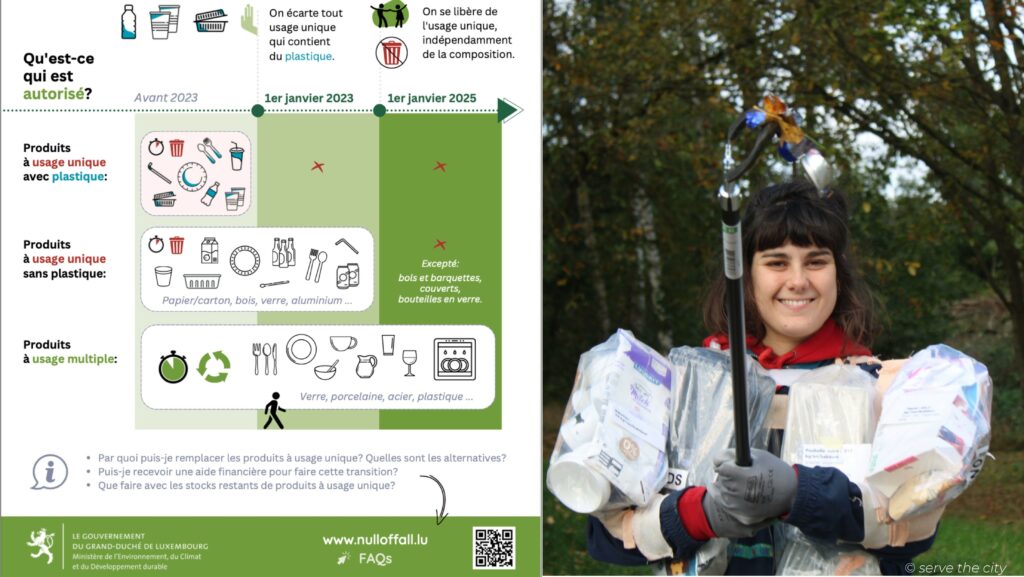
This strategy has four components: protecting soil and water / making better use of our objects / packaging sensibly / sustainable construction. Since January 1, 2023, single-use plastic objects have been banned in catering for meals consumed on site, but objects made of cardboard, paper or wood are still accepted.
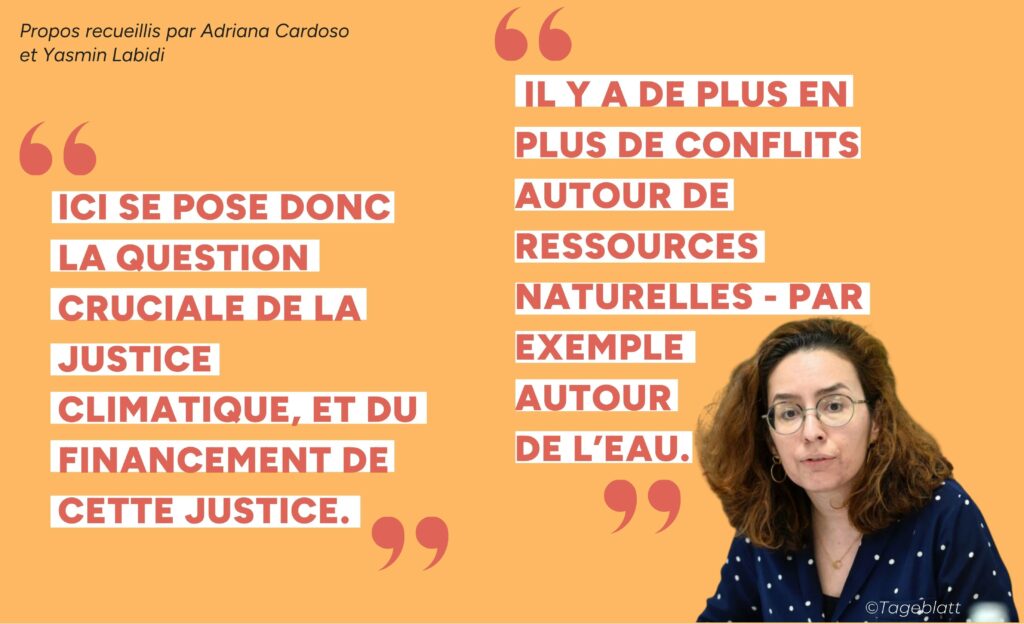
Luxembourg is one of the richest countries in the world; it is also proportionally one of the biggest emitters of CO2 emissions, and therefore responsible for climate climate. In the context of December 10th (International Human Rights Day), we spoke to Antoniya Argirova (climate justice campaigner at Greenpeace Luxembourg) about climate change and its impact on human rights, with a focus on Internally Displaced People*- IDPs.
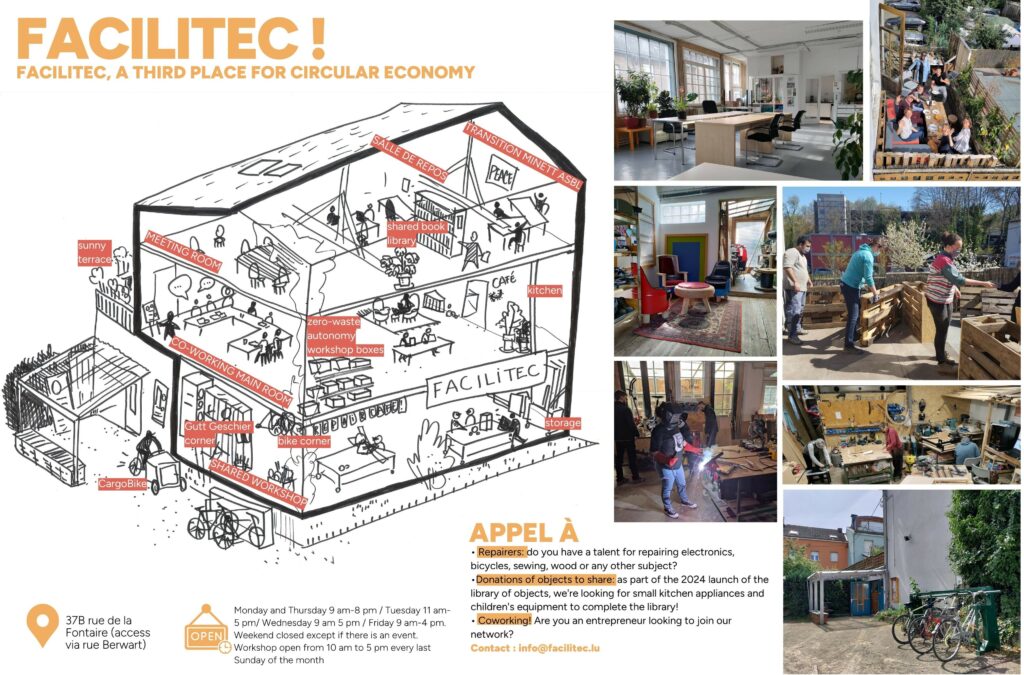
Housed in the former Claude Muller carpentry on Rue Berwart, 5 minutes from the train station in Esch-sur-Alzette, the place was renovated thanks to participative workshops and with second-hand materials from the end of 2018 to make it a place dedicated to circular economy.
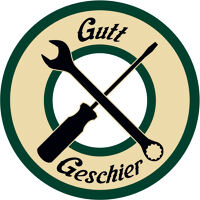
In Luxembourg, but also in most other European countries, that’s the average length of use of a new drill over its lifetime! Twelve minutes.
For most of them, that’s the time it takes to fix to the wall the shelf on which… you’re going to leave the drill for the rest of its life!And it’s the same to most new tools sold in DIY stores, or in supermarkets that offer power tools, usually battery-powered, at extremely low prices.
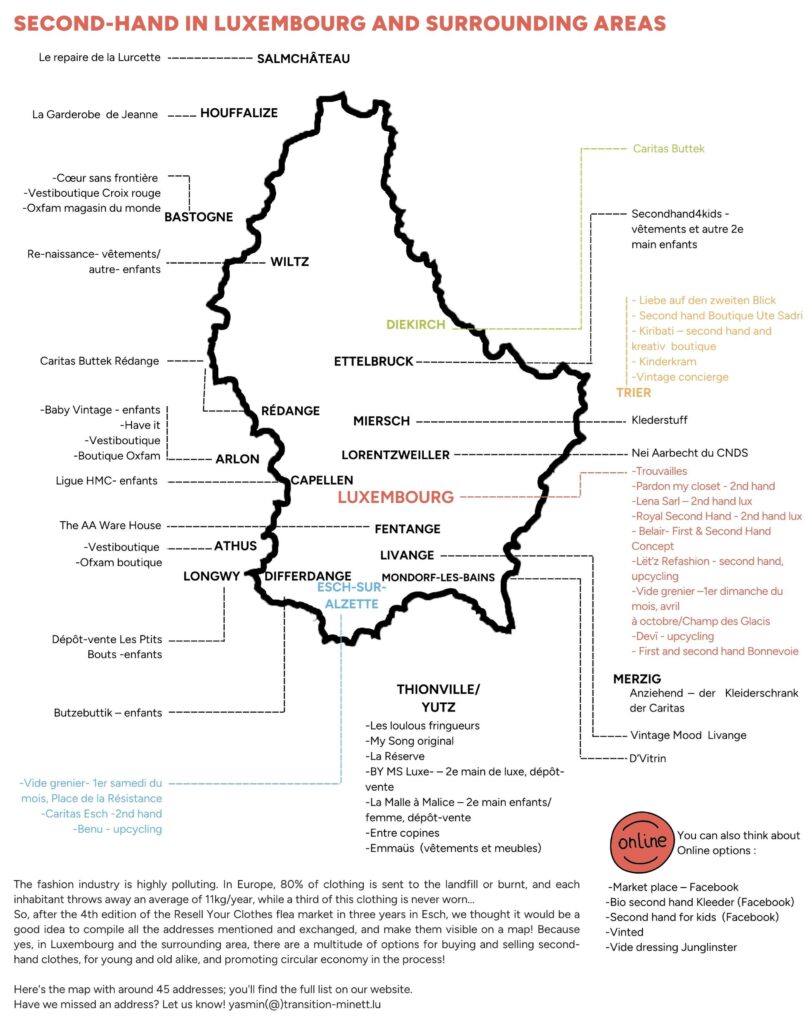
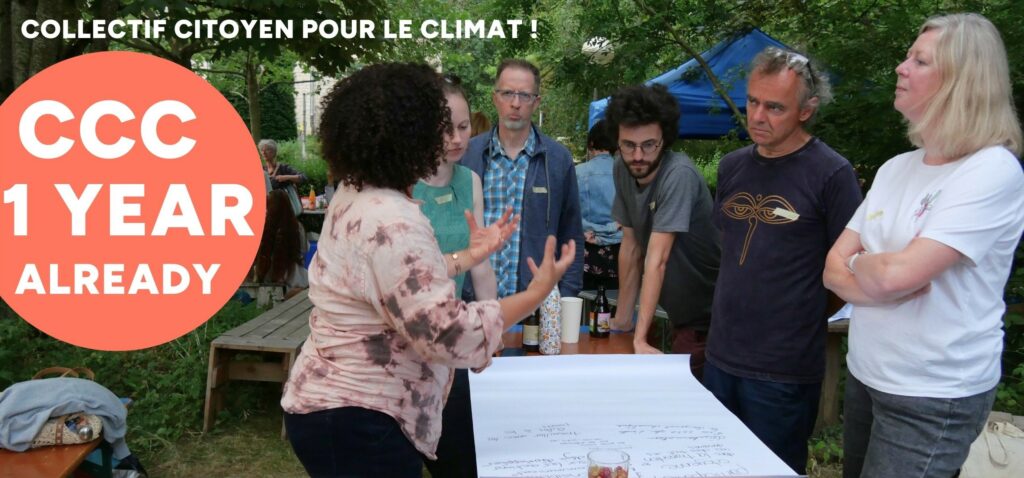
As a reminder, the first meeting was on December 3rd 2022, and on June 29th we all got together at the Breedewee Garden in Esch to discuss what each group is doing, to celebrate our collective and to reflect on its future (picture above).
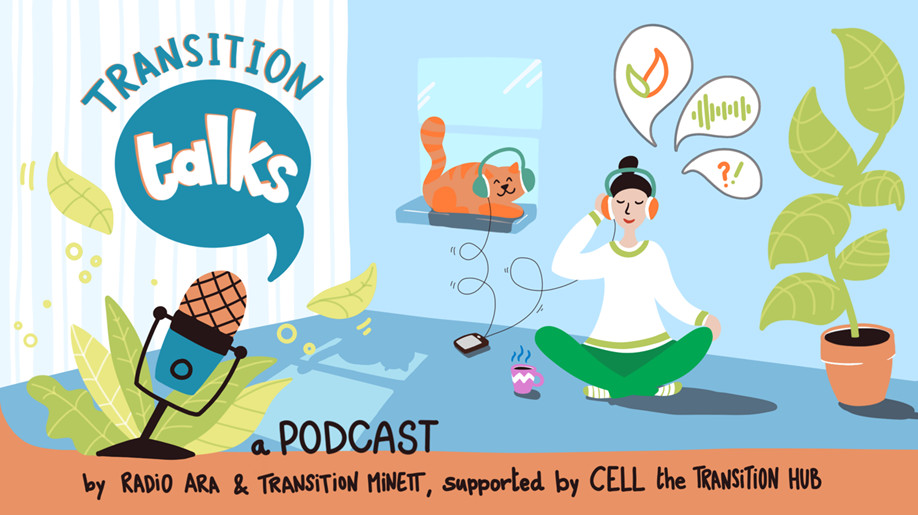
In this episode, Yasmin Labidi talks with Caroline Holz and Miss Bak about circular economy, local economical activities that respect the environnement and about alternative economy.
Caroline Holz is the coordinator at Facilitec in Esch at the Transition Minett association. She trained as a landscape architect and urban planner, and was involved in the design and construction of public spaces. Ahoua Bakayoko is the foundor of the project « MissBak » in Luxembourg, a natural cosmetics brand, which is vegan and aimal testfree respectful of the environnment.
